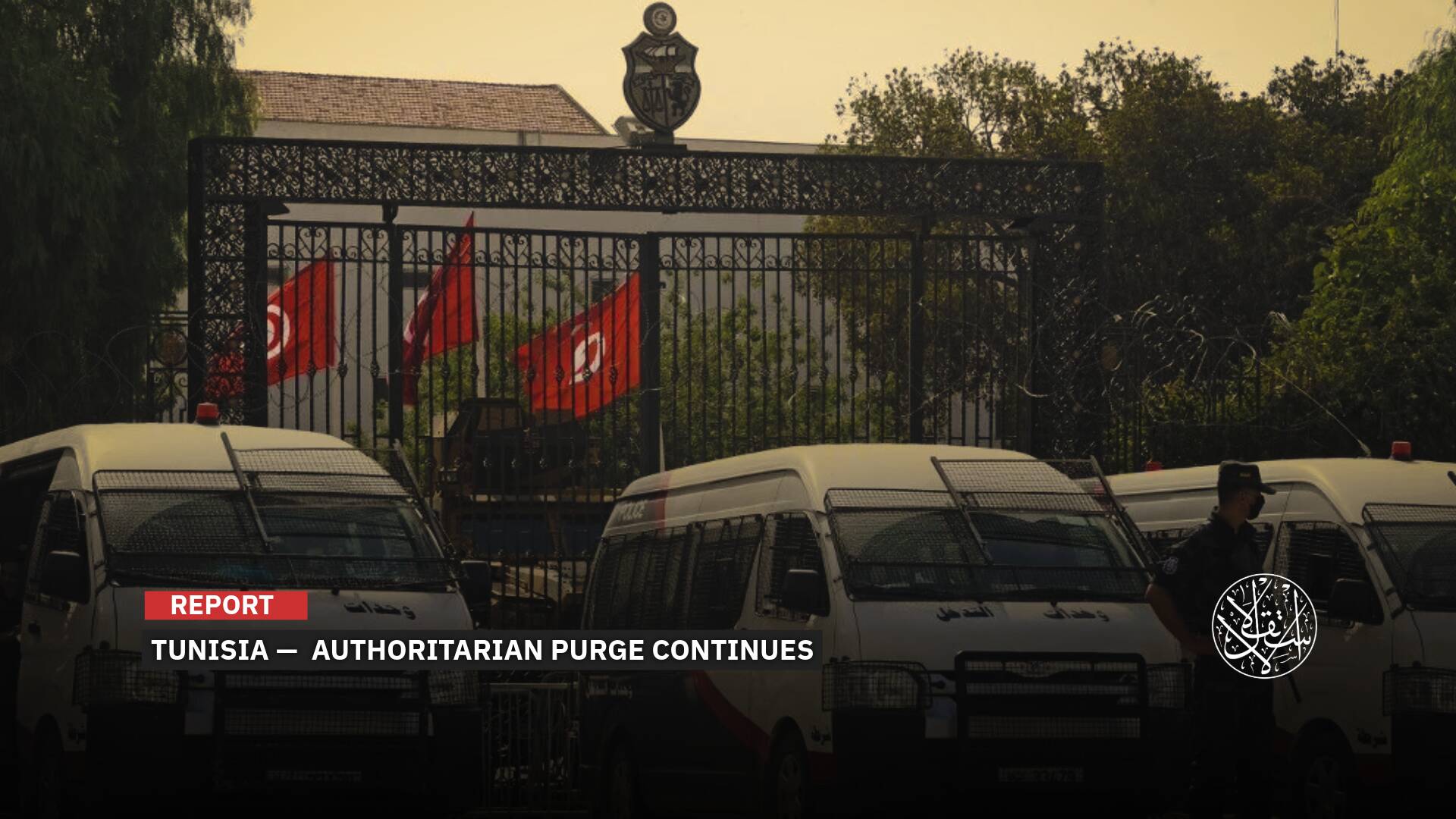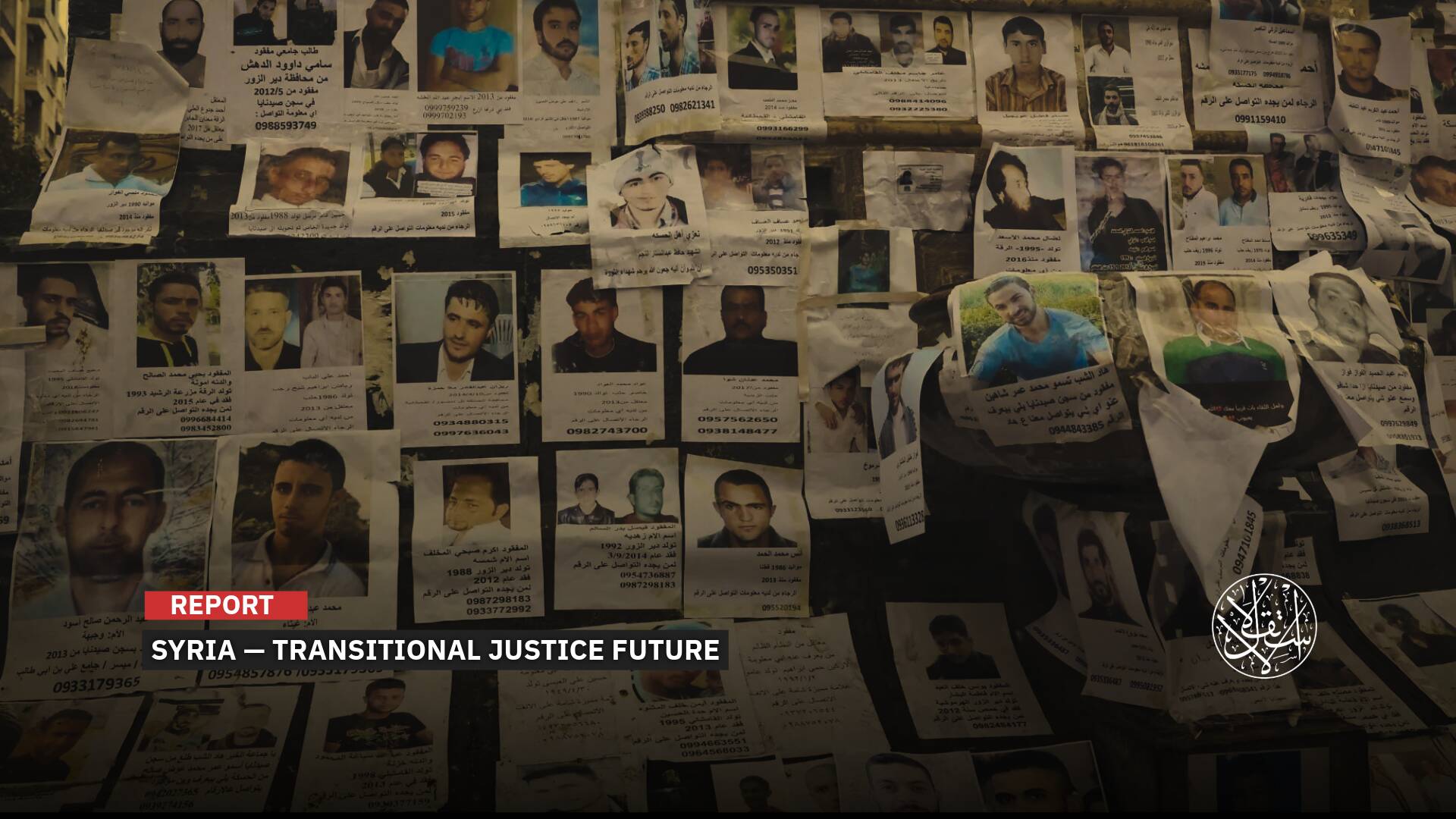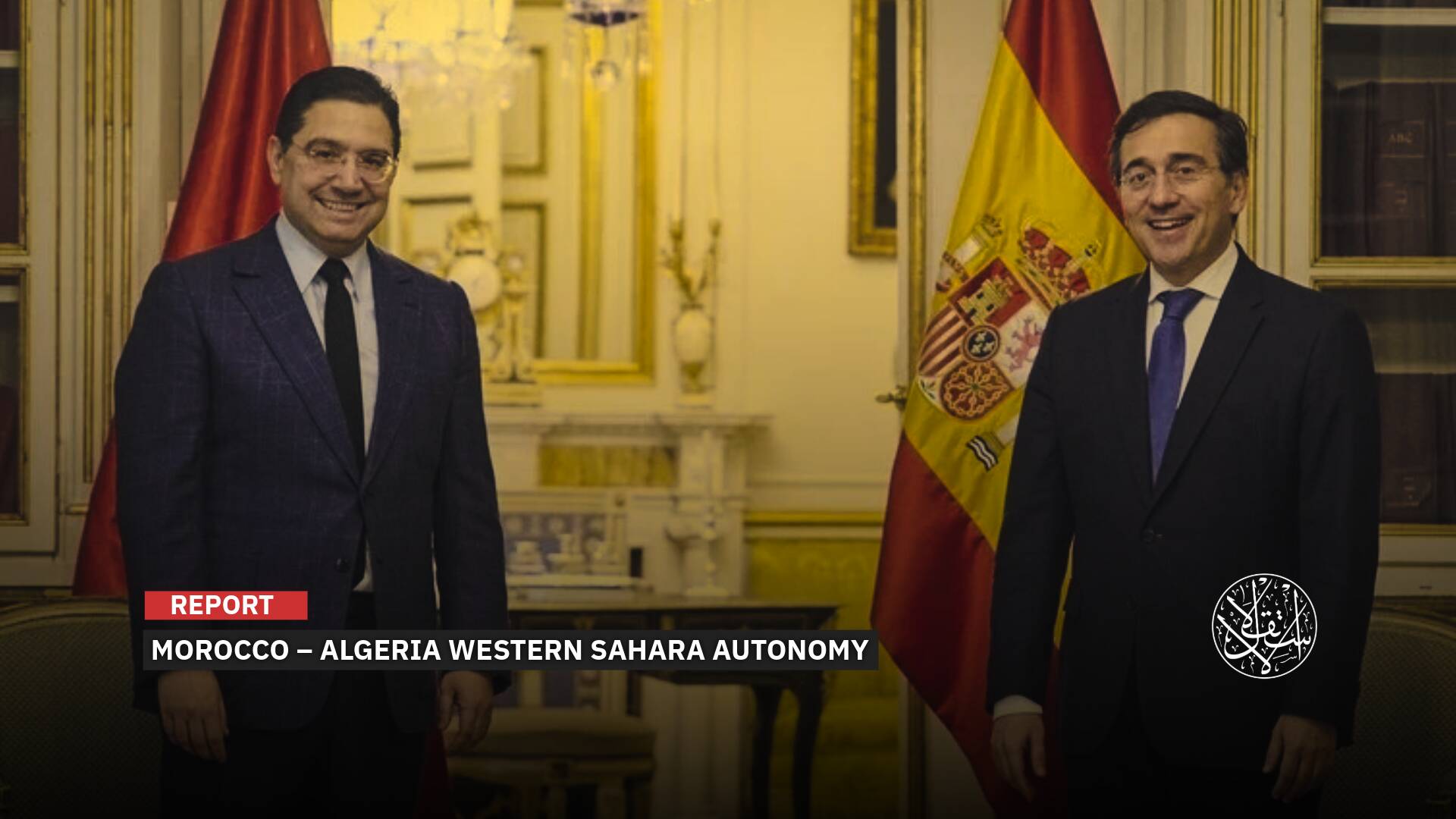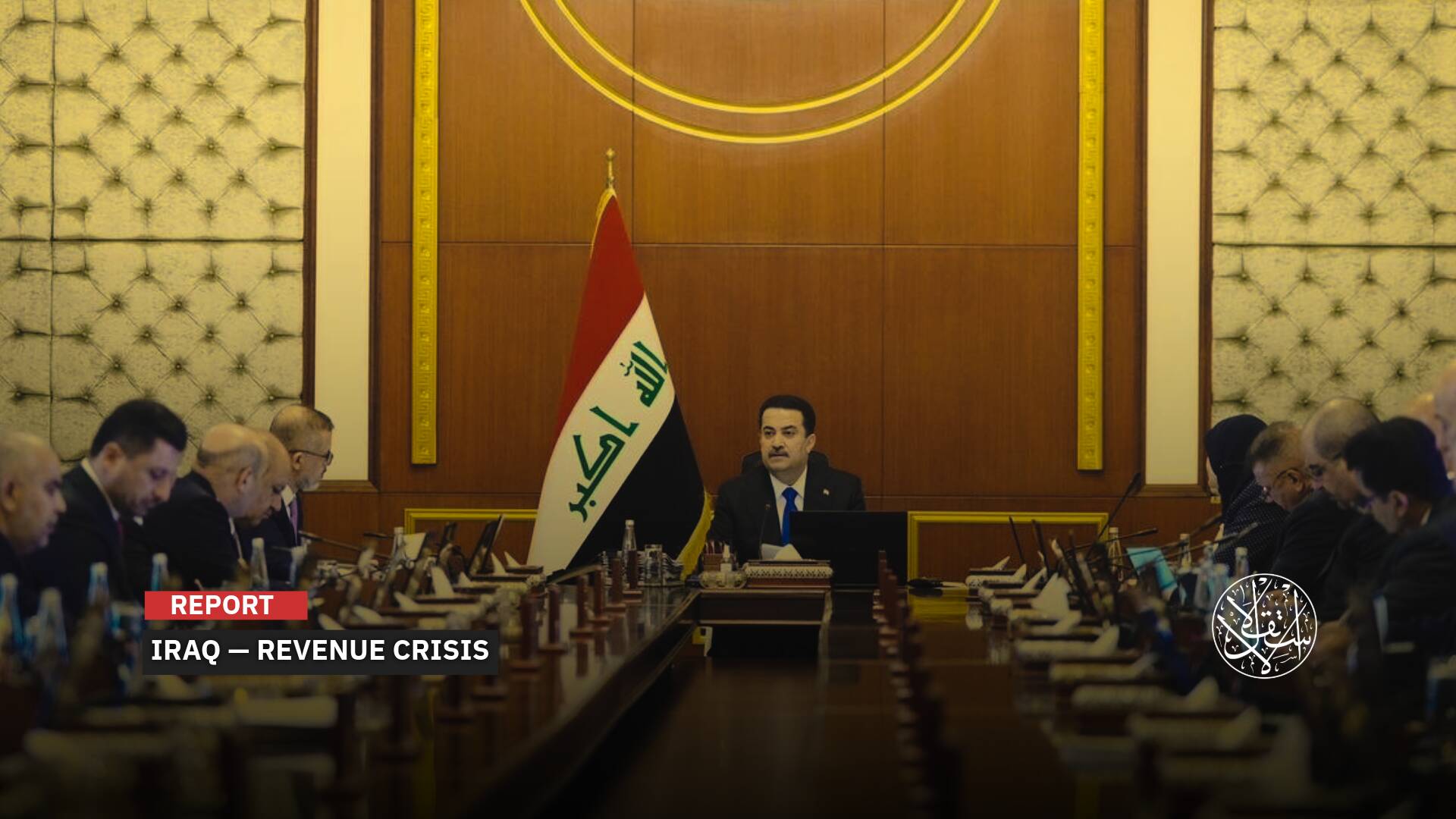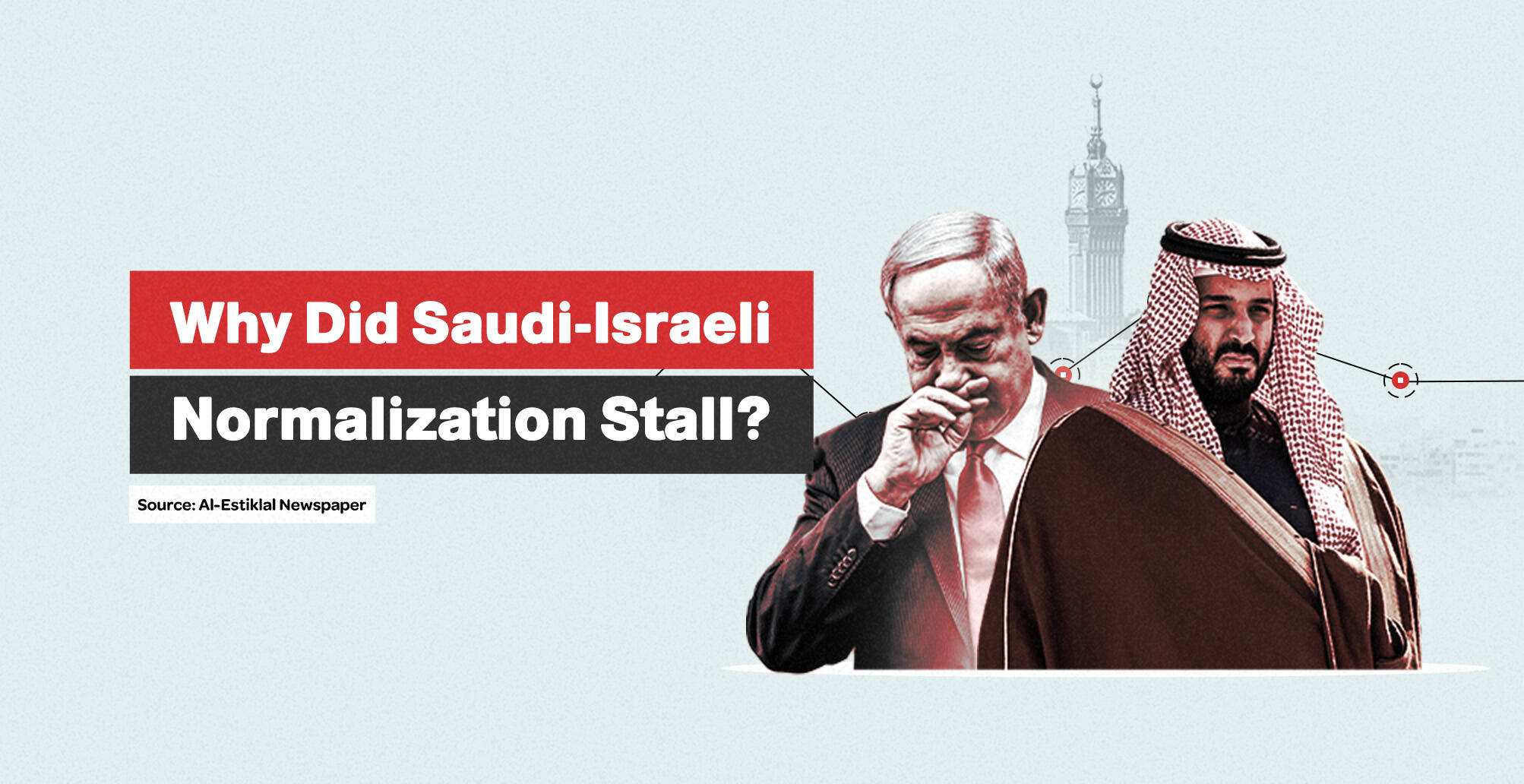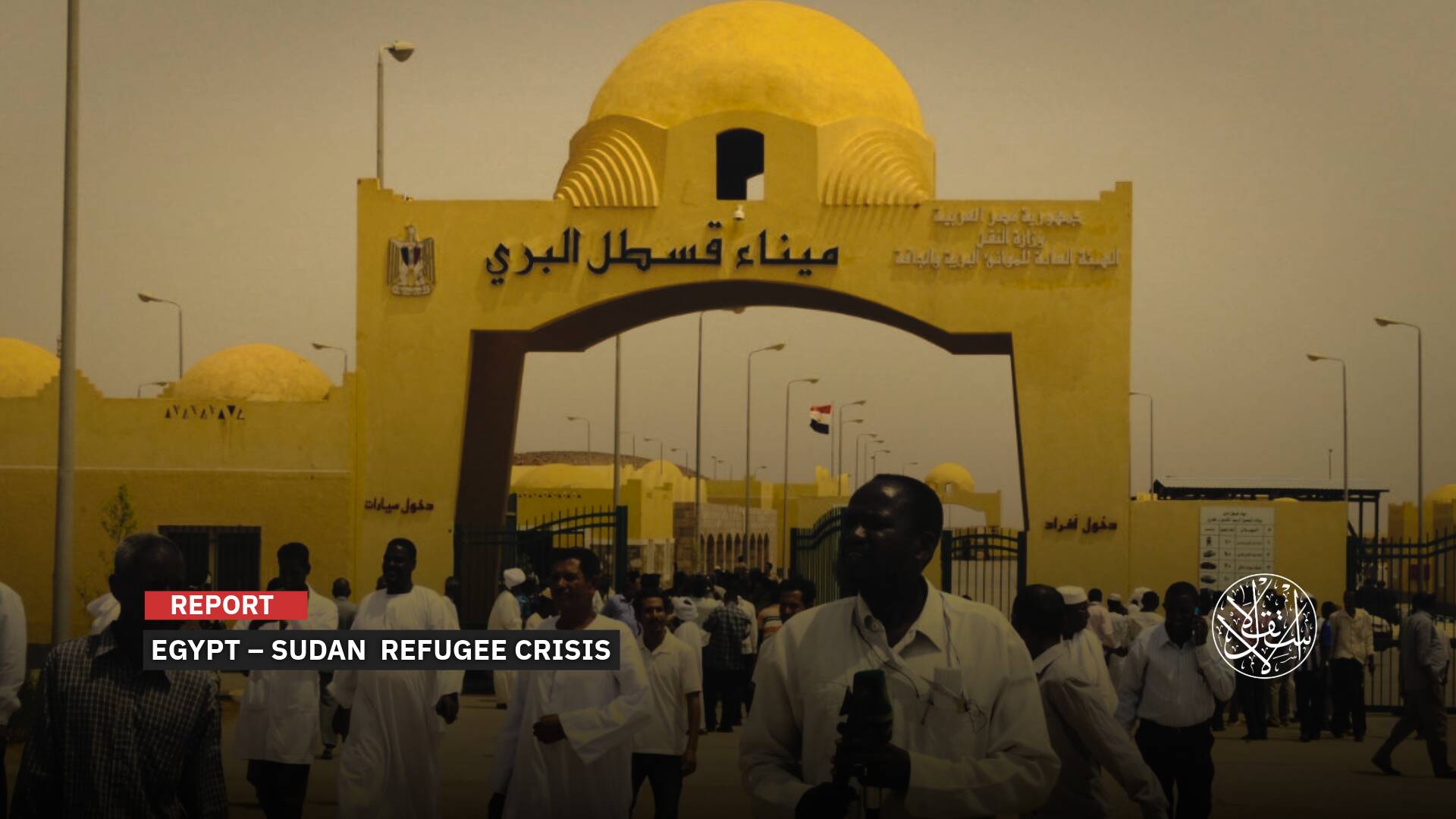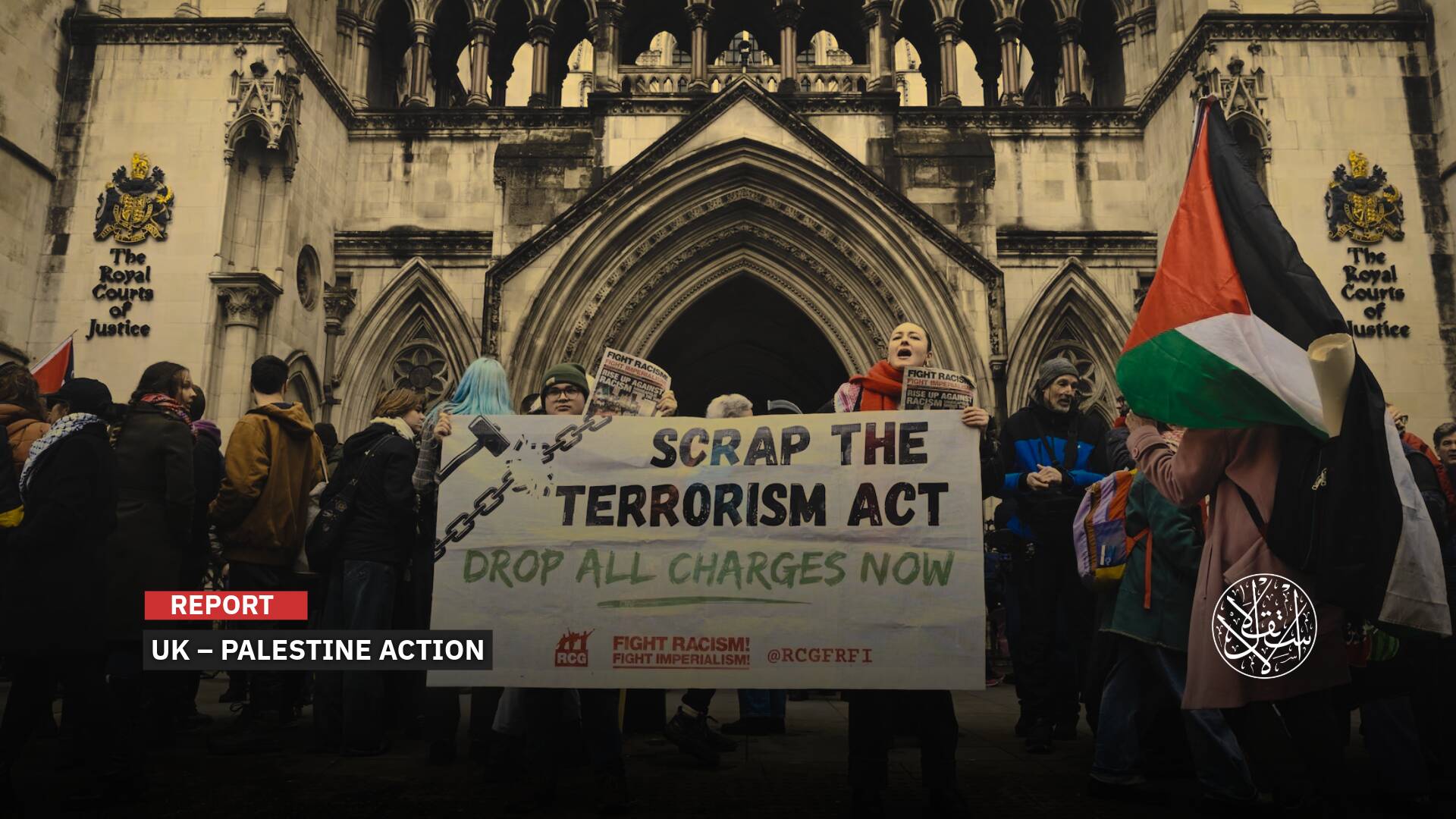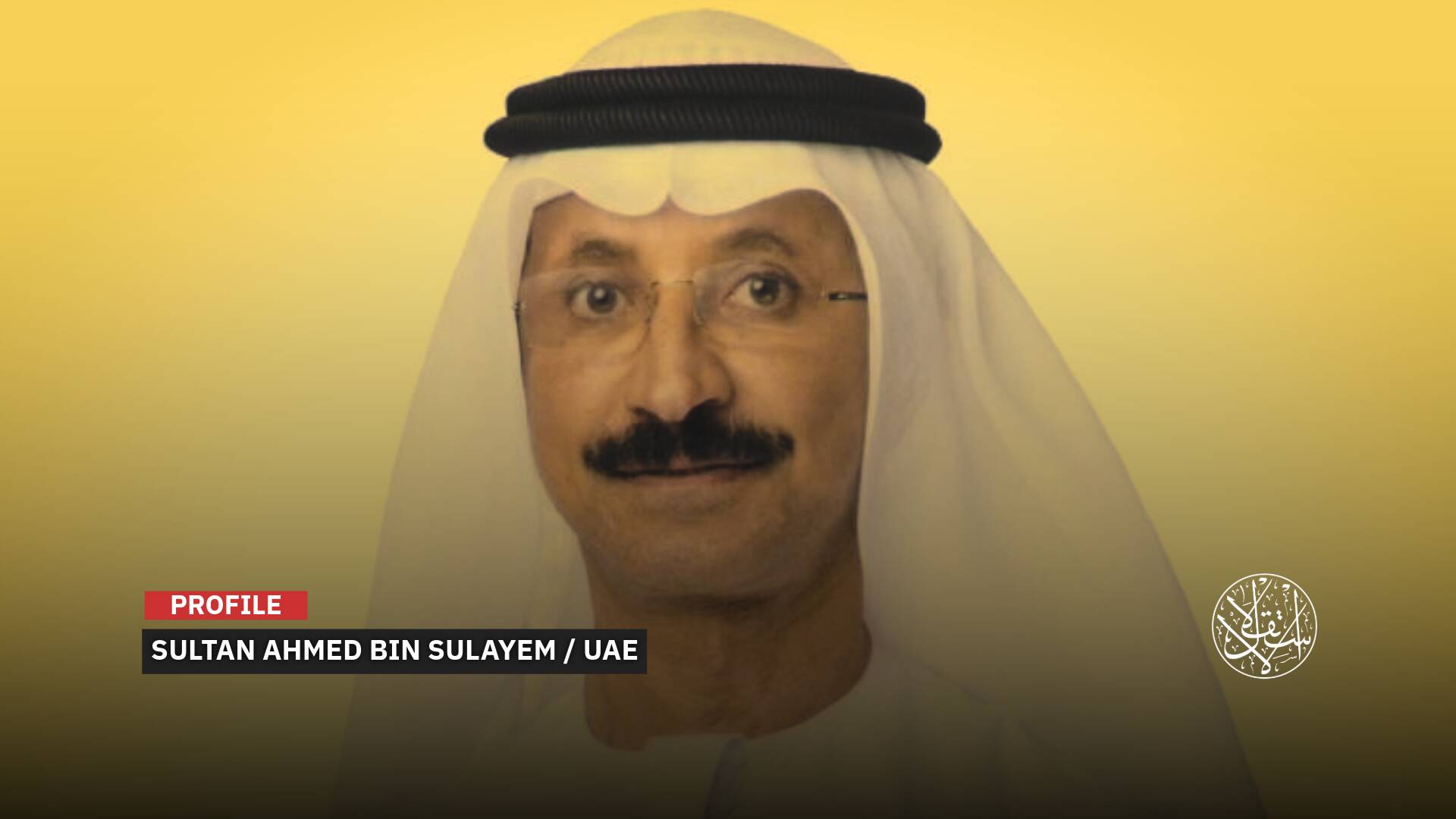As Moroccans Struggle With Poverty and Rising Prices, How Is Aziz Akhannouch Growing His Fortune?
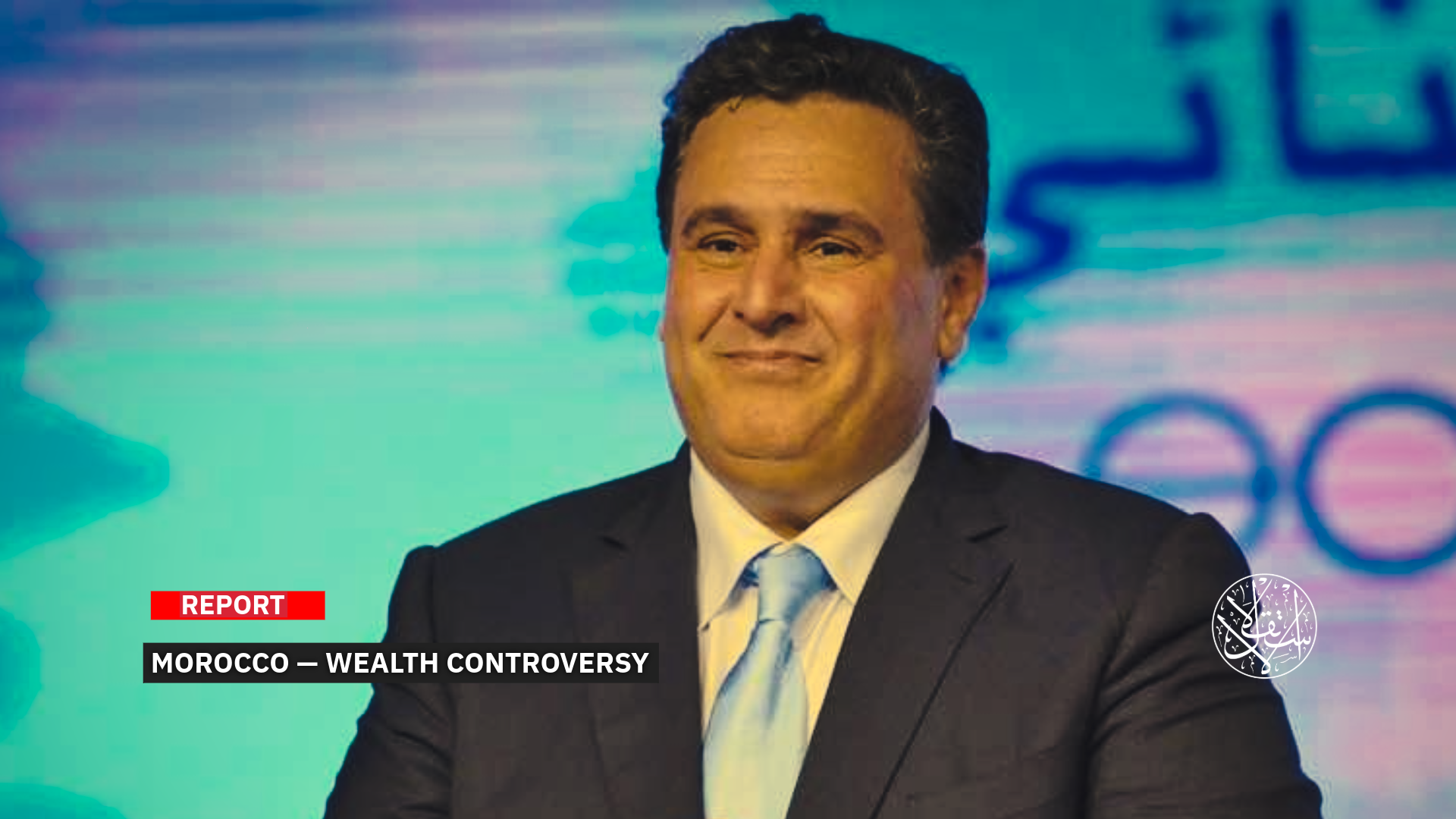
Since 2007, Aziz Akhannouch has blurred the lines between business and government.
Moroccan Prime Minister Aziz Akhannouch, owner of the Akwa Group conglomerate, continues to expand his personal investments both inside and outside Morocco, even as public frustration grows over soaring prices, inflation, and worsening economic conditions.
On June 18, 2025, the French magazine Jeune Afrique reported that Akwa Group had received approval from Senegalese authorities to begin importing petroleum products, following a series of administrative and technical hurdles.
At a time when Moroccans are looking to their prime minister for solutions to soaring living costs, rising prices of basic goods, poor public services in health and education, and a growing unemployment rate, Aziz Akhannouch continues to expand his investments both domestically and abroad.
Akhannouch’s holding company, Akwa Group, controls a significant share of Morocco’s fuel distribution market, allowing it to raise prices at will with little oversight or accountability. This dominance has sparked widespread public anger and accusations against fuel companies of profiteering and monopolistic practices.
The prime minister’s company, Afriquia Gaz, holds 36 percent of Morocco’s fuel market, including 29 percent of diesel sales and 42 percent of premium gasoline.
This raises a pressing question, has the role of the prime minister shifted toward expanding his personal investments and multiplying his wealth rather than addressing the daily hardships faced by nearly 40 million Moroccans?
Ethical Paradox
Journalist and political communication researcher Abdessamad Benabbad believes that Moroccans do not have a problem with businessman Aziz Akhannouch, particularly regarding his international ventures.
Rather, their main concern lies in how the prime minister navigates Moroccan law and the ethical dimensions of his growing fortune.
Speaking to Al-Estiklal, Benabbad said, “Since 2007, when he first entered government, Akhannouch has failed to separate business from public office. As opposition parties have long accused him, he has focused on accumulating wealth, even at the expense of the law, the state, and society.”
Benabbad noted that Morocco has made efforts to contain and limit corruption, as emphasized in Article 36 of the Kingdom’s Constitution, which states, “The law punishes violations related to conflicts of interest, the misuse of confidential information that harms fair competition, and any financial misconduct.”
Despite these legal safeguards, Benabbad explained that Akhannouch, after becoming prime minister following the September 8, 2021, elections, engaged in a series of legal and ethical breaches that warrant accountability.
Chief among them is the controversial desalination plant deal in Casablanca, which sparked widespread criticism in and beyond Morocco due to a clear conflict of interest.
In 2023, Aziz Akhannouch, Morocco’s prime minister and owner of the Akwa Group holding company, secured a major deal for a seawater desalination project, extending his investment grip across land, sea, and air.
Benabbad argued that the danger posed by the current prime minister goes beyond his individual actions.
He warned that it is becoming a defining trait of many ministers in the current government, who are widely accused by the opposition, remaining media outlets, and social media users of abuse of power, conflicts of interest, favoritism, clientelism, and profiting from state resources through public contracts, appointments, and other serious legal violations.
“We are facing a strange paradox,” Benabbad concluded, “perhaps for the first time in Morocco’s history, public officials have shifted from being guardians of the law to its violators, at the expense of the nation, the state, and the people.”
Growing Fortune
A 2018 report by a parliamentary fact-finding committee previously pointed the finger at Akhannouch’s company, Afriquia Gaz, along with other fuel distributors, accusing them of generating profits outside the bounds of the law and through illegitimate means.
By early 2021, those unlawful profits had reportedly reached 45 billion dirhams, or about 4.5 billion dollars, according to Moroccan energy expert and union leader el-Houcine el Lyamani, quoted by a local news outlet.
According to media reports, Akhannouch’s fortune and profits have only continued to grow, largely through his privately held companies, directly benefiting from the dramatic spike in fuel prices.
In the latest update by American magazine Forbes on Africa’s wealthiest individuals in 2025, Moroccan Prime Minister and businessman Aziz Akhannouch was reported to have a net worth of 1.6 billion dollars as of January 1, 2025.
The petroleum and gas sector appears to be the primary engine behind Akhannouch’s fortune, fueled by what many describe as “skyrocketing” fuel prices.
The medical oxygen sector is clearly monopolized by Prime Minister Aziz Akhannouch through his company, Maghreb Oxygen.
Akhannouch’s company exclusively supplies this vital resource to public hospitals and private clinics, charging what many describe as excessive and inflated prices.
Despite its crucial importance, the price of medical oxygen has yet to be regulated like other medicines, leaving it opaque to the public and vulnerable to monopoly by certain individuals or groups.
An Old Habit
Akhannouch’s drive to expand his investments and interests is not new. On July 29, 2021, through his company Africa Gas, he signed a deal with British firm Sound Energy to acquire assets worth $2.8 million, including the sale of liquefied natural gas extracted from the Tendrara project in the Figuig region in eastern Morocco.
A local investigation by al-Sahifa revealed that after Akhannouch became a shareholder in the British company, taxes on Sound Energy were reduced, raising suspicions of a conflict of interest in the deal.
The local outlet reported that after Akhannouch became a shareholder in the British company owning the Tendrara gas project, the UK-based Morningstar website revealed striking details about the Moroccan tax authority, then headed by Mohamed Benchaaboun, a member of the political bureau of the National Rally of Independents party, which currently leads the government.
It noted that the tax authority waived claims related to intangible asset acquisitions between 2016 and 2018 by Sound Energy following several sessions with a special committee formed within the tax administration for this purpose.
In late October 2022, local Mauritanian and Moroccan outlets reported that the Moroccan company known as “Akwa” had acquired Total Mauritania, a subsidiary of the French energy giant Total Energies.
The reports stated that the Competition Council, a government body responsible for ensuring transparency in economic relations, was notified of the proposed economic concentration process granting exclusive control of Total Mauritania to Akwa Africa.
Concentration of Wealth
Commenting on Prime Minister Aziz Akhannouch’s focus on multiplying his wealth while Moroccans struggle with rising fuel, food prices, and weak social services, Justice and Development Party leader Abdelaziz Aftati said this approach is part of a predatory model disguised as “liberalism” and “openness” that is being applied in several countries.
Aftati told Al-Estiklal that in Morocco, under the direction of the core power center within the state, sources of “macro-wealth” rather than just wealth itself are being distributed and concentrated in the hands of a few allied families.
He added that these family “cartels,” orchestrated and directed by the core power within the state, deliberately assign roles for networking and alliances with foreign capital to serve the agendas of other countries, while simultaneously benefiting the cartels themselves and facilitating cross-border and transcontinental predation.
Aftati believes that the severe division of key and highly sensitive sectors, such as renewable energy, seawater desalination, and other traditional rentier industries, among local and transcontinental cartels does not promote sustainable development, social justice, or the fair distribution of growth benefits among broader social groups. Instead, it serves the interests of foreign agendas that exploit large and rentier capital for various purposes.
Aftati pointed out that this figure, the comprador Akhannouch, acquired an entire fuel network in a sister state, previously owned by Total, referring to Akhannouch’s takeover of Total Mauritania, a subsidiary of the French energy giant TotalEnergies.
He argued that these dealings will inevitably raise questions due to Akhannouch’s executive position, suggesting that he benefited from his role within the state and its institutions above all else.
He added that Morocco’s image risks shifting from a cooperative and supportive country to one tainted by exploitation and other damaging issues that could harm its historic relations.
Aftati concluded that these market takeovers or dominance of large market shares in other countries by someone involved in what people know as “macro extraction” worth tens of billions of dirhams, evidenced by fines imposed by the Competition Council including 1.83 billion dirhams on nine fuel companies, will open the door to confusion, as the state’s protection of big capital stifles competition, entrenches poverty, and deepens social inequality.


